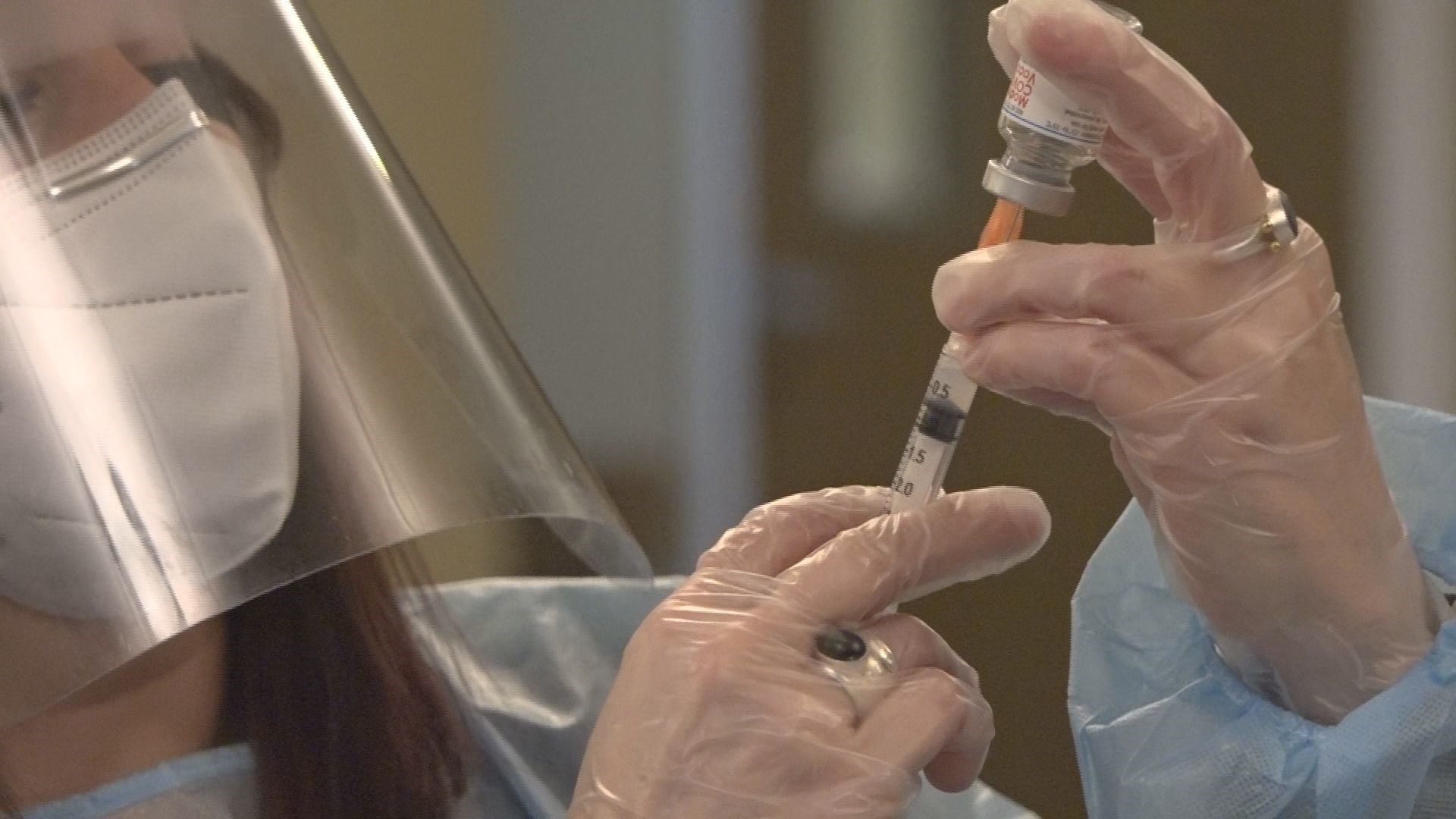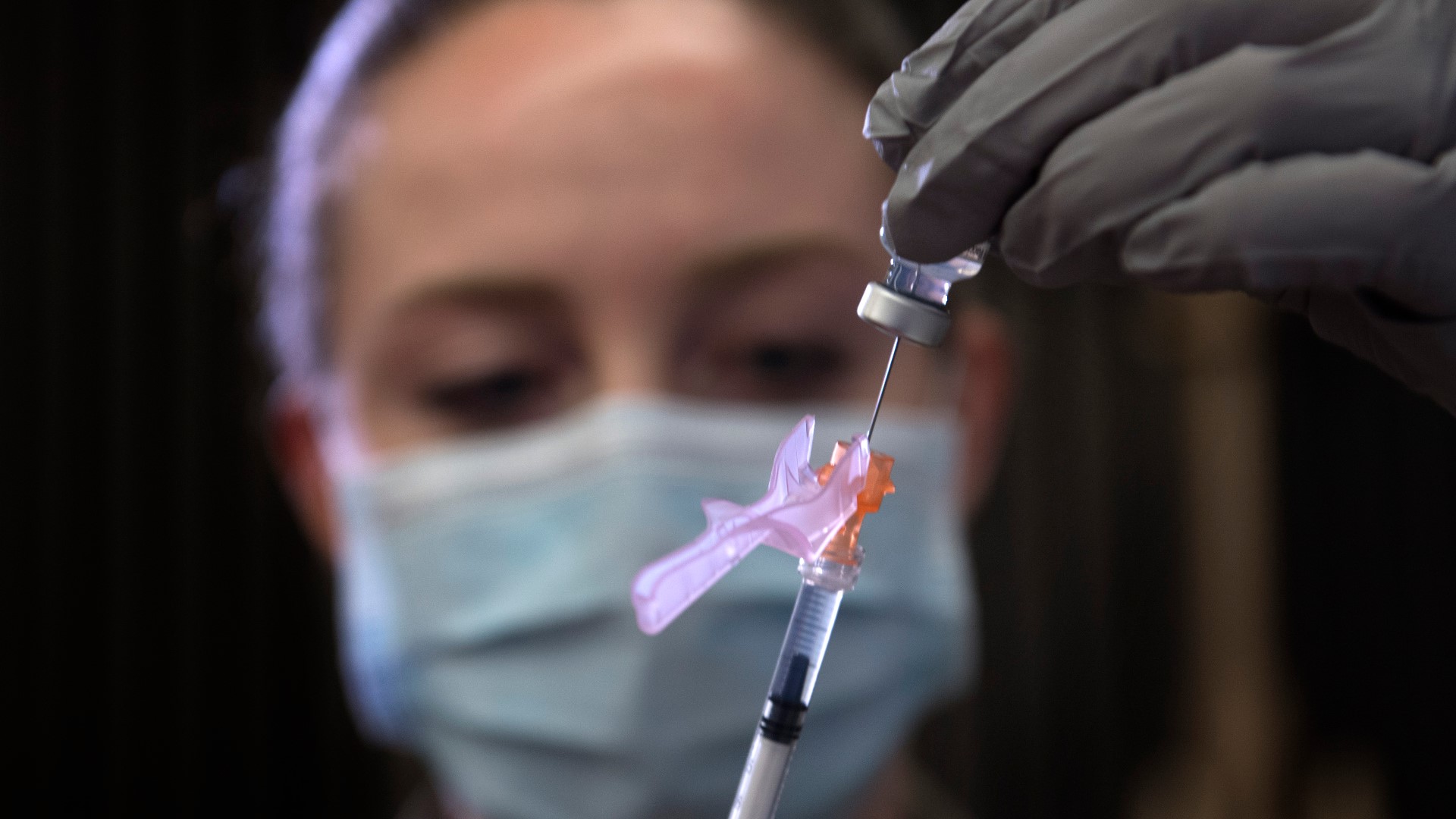LANSING, Mich. — Gov. Gretchen Whitmer announced Wednesday that the state is moving into a new phase of the COVID-19 vaccination plan starting Monday, Jan. 11.
The state's goal is to vaccinate 70% of Michiganders over the age of 16 and bring an end to the pandemic.
The Michigan Department of Health and Human Services (MDHHS) is moving forward with vaccination of Michiganders age 65 and older; frontline essential workers including police officers, first responders, frontline state and federal workers and jail and prison staff; and preK-12 teachers and childcare providers.
To date, 80% of deaths have occurred among those age 65 and older. In addition to vaccinating Michiganders who are 75+ in Phase 1B, MDHHS is accelerating to vaccinate individuals 65-74 years old due to concerns around disparity in life expectancy by race and ethnicity for this group.
“The more people we can get the safe and effective vaccine, the faster we can return to a sense of normalcy,” Gov. Whitmer said Wednesday. “I urge all seniors to get the COVID-19 vaccine as soon as possible and that all Michiganders to make a plan to get vaccinated when it becomes available to you. And as always: mask up, practice safe social distancing, and avoid indoor gatherings where COVID-19 can easily spread from person to person. We will eliminate this virus together.”
►Watch the press conference here.
All counties may begin vaccinating residents over age 65 and seniors are urged to visit Michigan.gov/COVIDVaccine to find local health departments and other local vaccine clinics near them that are ready to book appointments.
Eligible essential workers, teachers and childcare workers will be notified by their employers about vaccine clinic dates and locations. Eligible individuals should not go to any of the clinics without an appointment.
MDHHS said there is limited vaccines available in the state, and so there will be limited appointments available. As more vaccines becomes available, the state will be able to move more quickly through the priority groups.
- Phase 1A: Paid and unpaid persons serving in healthcare settings who have the potential for direct or indirect exposure to patients or infectious materials and are unable to work from home as well as residents in long term care facilities.
- Phase 1B: Persons 75 years of age or older and frontline essential workers in critical infrastructure.
- Phase 1C: Individuals 16 years of age or older at high risk of severe illness due to COVID-19 infection and some other essential workers whose position impacts life, safety and protection during the COVID-19 response.
- Phase 2: Individuals 16 years of age or older.
MDHHS also said vaccination in one phase may not be complete before vaccination in another phase begins. There may be vaccination of individuals in different phases that occur simultaneously. The timing of the start of vaccination in a phase is dependent on the supply of vaccine from the manufacturer, how vaccine is allocated from the federal level to Michigan and the capacity to administer the vaccine to populations, the press release explained.
More than 140,000 of Moderna and Pfizer COVID-19 vaccine have been administered to health care workers, with more than 8,000 of those doses going to nursing home residents and staff. This data is being tracked on the COVID-19 Vaccine Dashboard, which also includes information on the number of providers enrolled to provide the vaccine and vaccination coverage rates by age and race.
Even with COVID-19 vaccinations starting in Michigan and worldwide, Dr. Joneigh Khaldun, chief medical executive, urged everyone to continue to practice preventative measures such as properly wearing masks, social distancing and frequent hand-washing to reduce the spread of the virus until the vast majority of people have been vaccinated.
There will be no out-of-pocket costs to individuals for the vaccine, however, healthcare providers may bill insurance for administrative costs.
The COVID-19 vaccine will require two doses, separated by three or four weeks depending on the manufacturer.
Individuals who receive the vaccine may experience mild side effects such as low-grade fever, sore arm and general discomfort, which indicate that the vaccine is working.
Find more information about the COVID-19 vaccine at Michigan.gov/COVIDvaccine.
RELATED VIDEO:
►Make it easy to keep up to date with more stories like this. Download the 13 ON YOUR SIDE app now.
Have a news tip? Email news@13onyourside.com, visit our Facebook page or Twitter. Subscribe to our YouTube channel.


